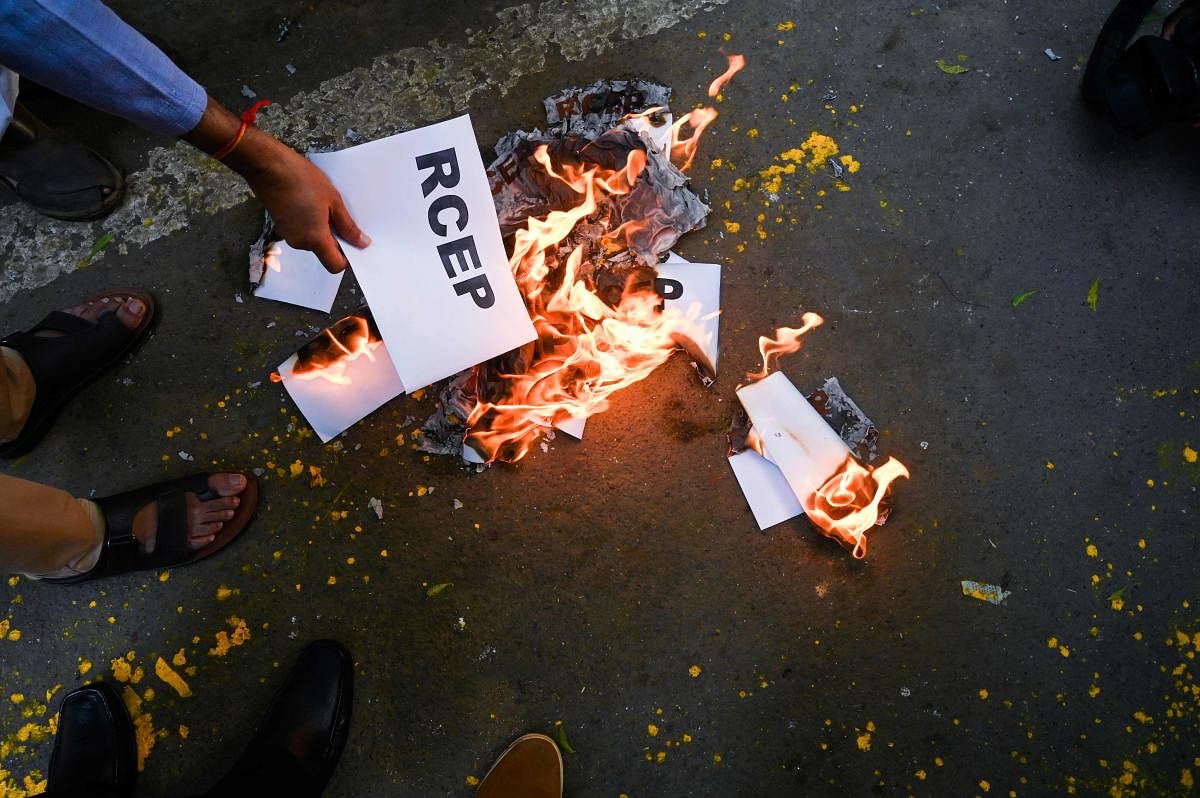
Indian Chemical Council (ICC) on Monday said it is not against the signing of RCEP trade agreement among 16 countries, but demanded that the government should protect the interest of the domestic industry and prevent any misuse of the rules of origin.
The proposed Regional Comprehensive Economic Partnership (RCEP) agreement includes 10 member-countries of the Association of Southeast Asian Nations (ASEAN) and six of the bloc's dialogue partners -- China, Japan, South Korea, India, Australia and New Zealand.
"Indian chemical industry is an industry-of-industries with a combined turnover of USD 160 billion. It is growing at 100 basis points more than the economic growth," ICC President Vijay Shankar told reporters here.
Indian chemical industry has the potential to be the engine of growth in the next decade, he said.
Asked about the RCEP, Shankar said: "We are not saying that do not sign the agreement. We want that the government should protect the interest of the domestic chemical and petrochemical industry".
He said the government has held various rounds of consultations to understand various concerns of the chemical industry, which manufactures 5,000 products.
The ICC has demanded prevention of misuse of the ‘Rules of Origin’ since the trade deal places the RCEP members into a quasi-bloc with higher dominance of China.
For India, the biggest issue is to protect the economy from the flooding of cheap imports of Chinese chemicals, creating an enormous disadvantage for the Indian chemical industry.
Rules of Origin under the RCEP have a criterion which can potentially prove to be damaging for products with multiple stage production processes.
Termed as 'Produced Entirely', it suggests that in a multi-stage production process if all the inputs in the final production stage are from RCEP countries, its origin will be conferred.
ICC's DG H S Karangle said, "The liberal origin rules adopted under the RCEP coupled with the 'regional cumulation' rule would permit the latter country to be treated as the country of origin and accordingly, the goods imported into India from this country would get preferential treatment, as the product figures in the positive list for tariff liberalization for that country. In this way, MFN duties otherwise applicable to the goods imported from China can easily be circumvented."